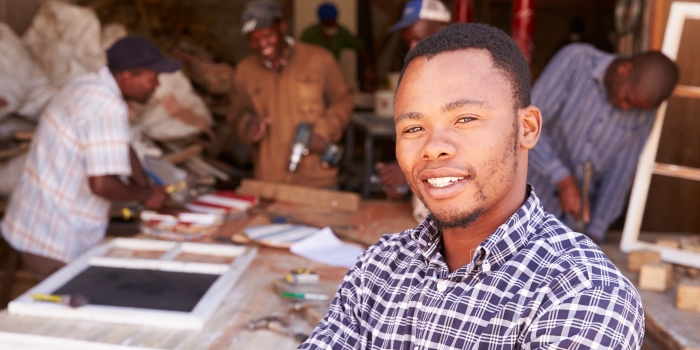Five takeaways from the 2025 World Economic Forum

Last week, leaders from around the world gathered in Davos, Switzerland for the World Economic Forum (WEF). The theme for 2025 was “Collaboration for the Intelligent Age,” addressing the intersection of sustainability, innovation and partnerships. Throughout the Forum, the UN Global Compact engaged with CEOs, Government leaders and civil society to emphasize business-driven solutions and to look at what the public and private sector can do collectively to advance the Sustainable Development Goals (SDGs).
"In an era defined by unprecedented technological advancement and global complexity, the role of businesses in delivering on the Sustainable Development Goals has never been more vital. At Davos, we witnessed the power of collaboration to harness innovation, unlock investment and advance transformative solutions that benefit both people and the planet. Together, we can create a more sustainable, inclusive and resilient future." — Sanda Ojiambo
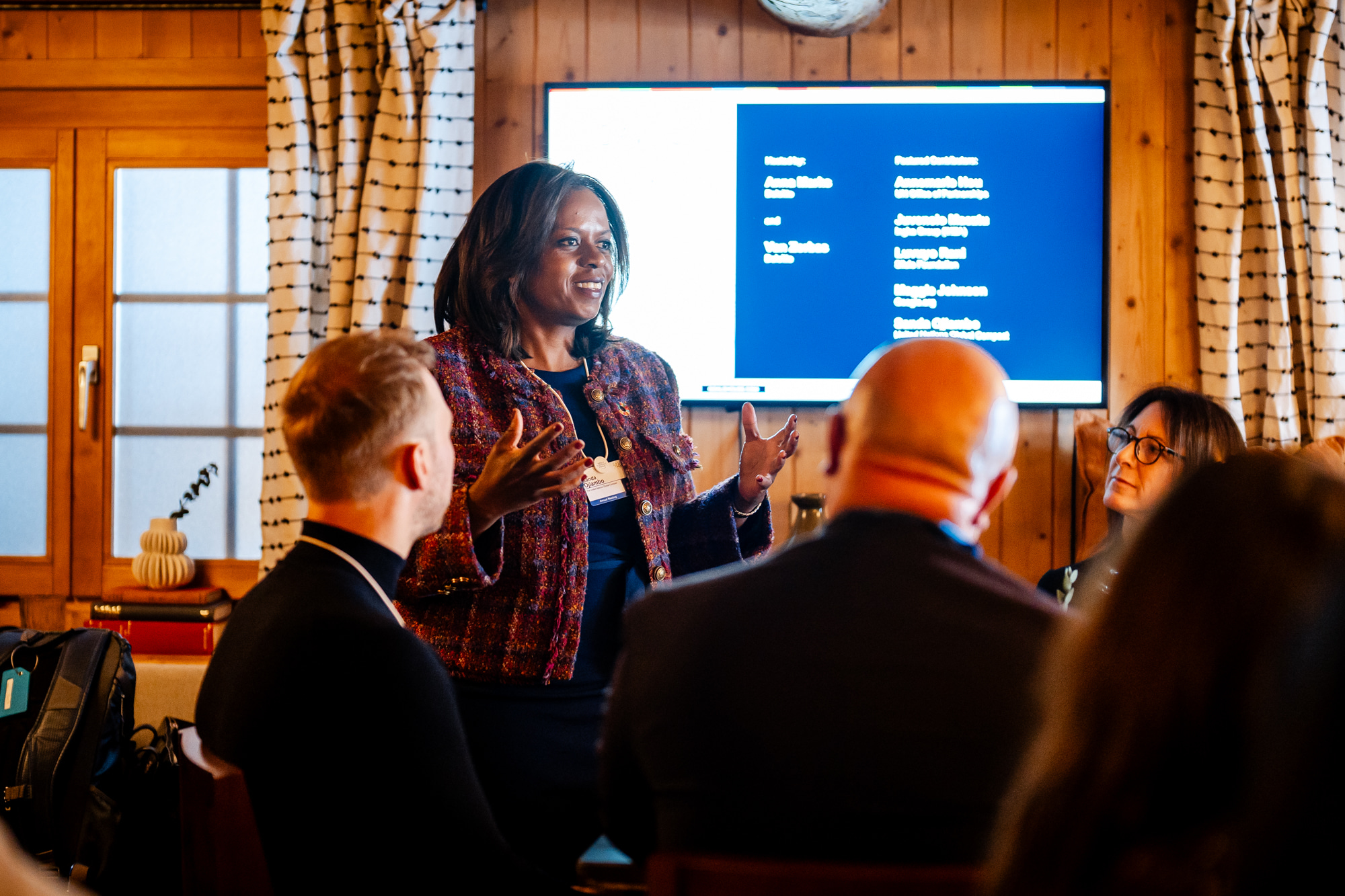
Read on for five major takeaways from the UN Global Compact at the 2025 World Economic Forum:
1. Sustainability for business resilience and innovation
Considering sustainability is not optional. One key takeaway from WEF 2025 is that embedding sustainability into business practices is a critical driver of resilience, competitiveness and long-term success. Without it, we risk creating a decade marked by stagnant growth and limited fiscal and monetary policy options tied to slow economic recovery. Instead, we must empower businesses to help shape resilient economies while reinforcing trust among stakeholders.
Businesses can create growth strategies that are both commercially viable and aligned with global sustainability goals. By championing its Ten Principles—covering human rights, labor, environment and anti-corruption—the UN Global Compact helps companies embed responsible practices into their core operations. This principle-based approach not only strengthens the ethical and governance foundations of enterprises but also positions businesses to capture emerging market opportunities in the digital economy.
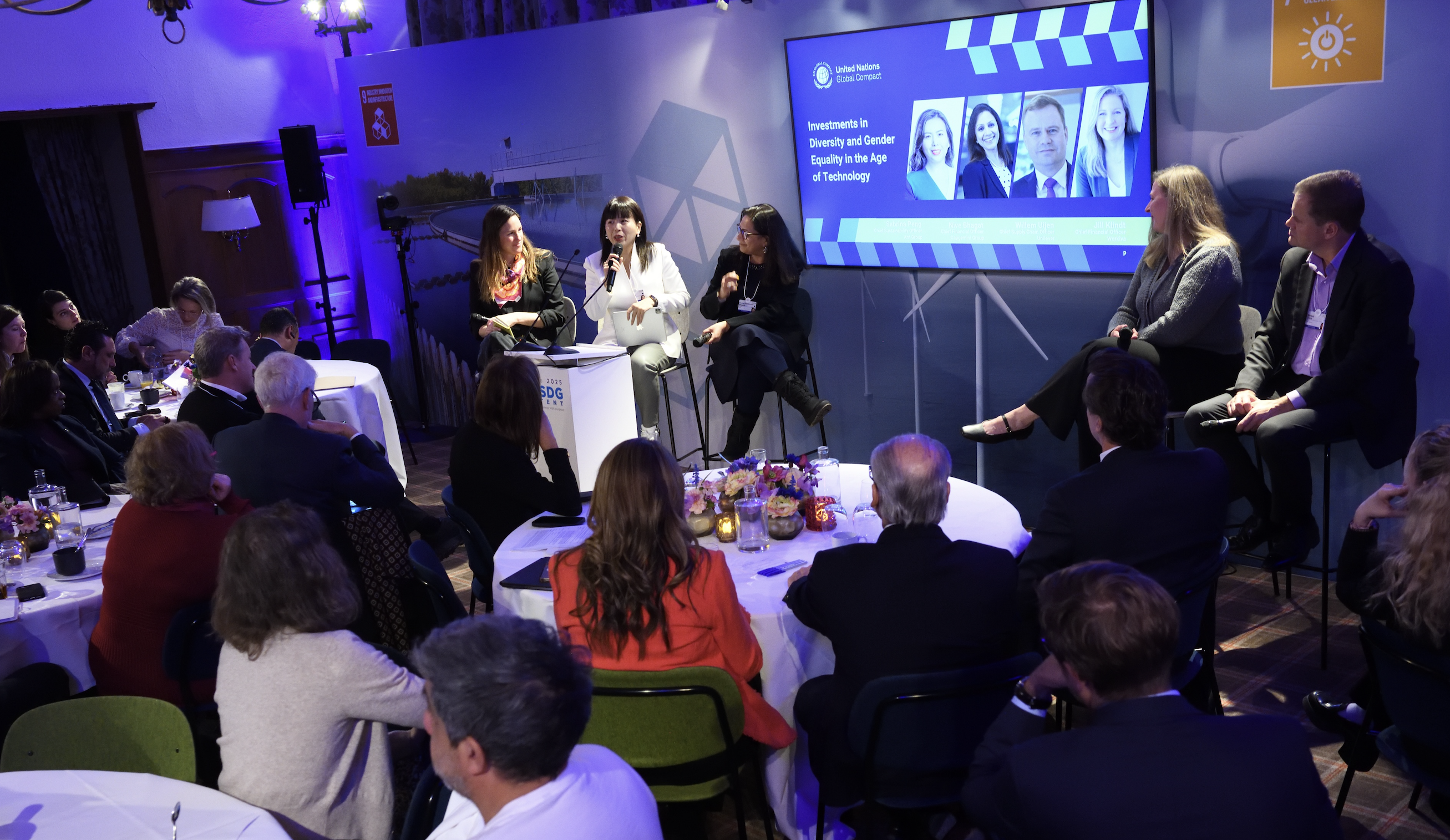
2. Role of emerging technologies
At the World Economic Forum, the role of technology was a central theme: the rapid rise of technologies like AI, quantum computing and green tech presents both challenges and opportunities for sustainable development.
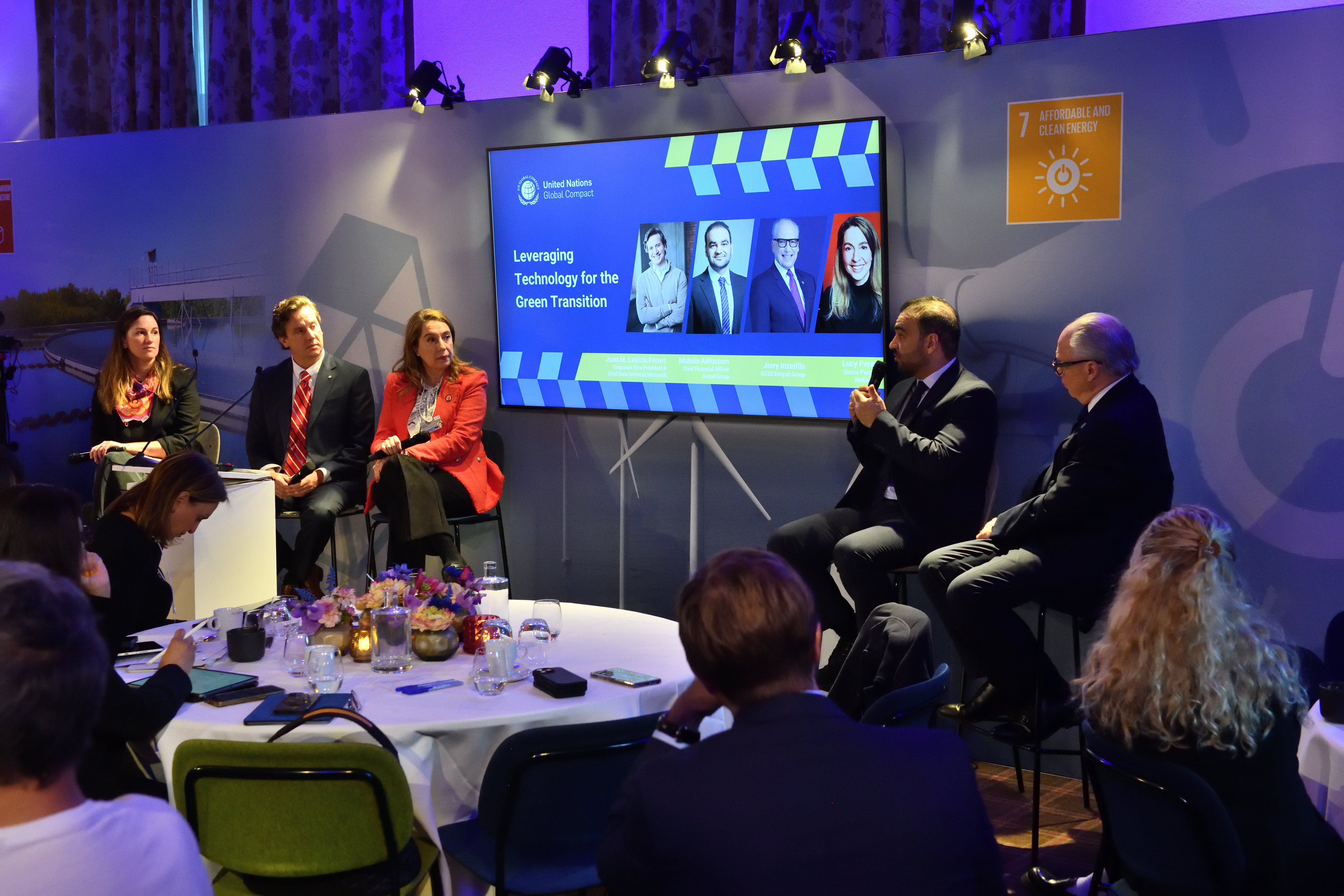
It is critical for companies to adopt ethical AI frameworks, ensuring innovations accelerate SDG progress rather than amplify inequalities. Ethical technology integration is key to addressing climate, equity and operational challenges.
The recent UN Global Compact report on AI highlights the growing imperative for companies to adopt responsible AI practices to maintain trust and unlock the full potential of these technologies. This report stresses that embedding robust governance structures, bias-mitigation strategies and stakeholder engagement models is critical to ensuring AI systems benefit people and the planet rather than exacerbate inequalities.
The framework of responsible business principles from the UN Global Compact ensures that industries navigating the Intelligent Age do so in a way that upholds human rights, fosters inclusive growth and safeguards the planet. This holistic approach to innovation—coupled with a commitment to ethical leadership—positions the private sector as a powerful driver of both immediate commercial success and sustainable, long-term impact.
Leaders at Davos emphasized the need to balance innovation with responsibility, leveraging technology to enhance supply chains, reduce emissions and improve transparency.
3. Partnerships are the catalysts for systemic solutions
Meeting the Global Goals is a project that not one person, company, country or sector can achieve alone. Multi-sectoral collaboration was a central theme at Davos, reinforcing the importance of partnerships to tackle global challenges.
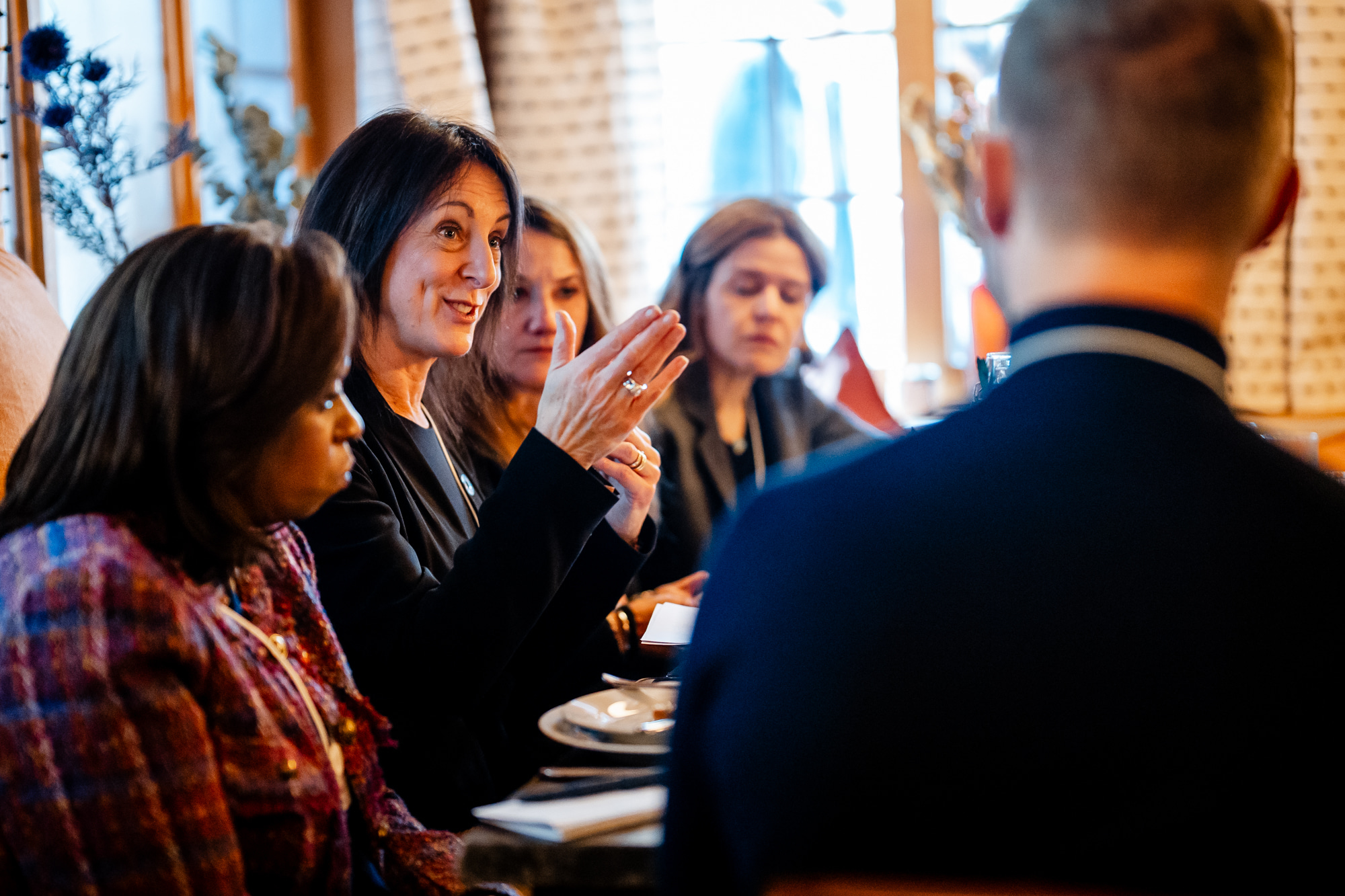
Partnerships have the potential to unlock $12 trillion in market opportunities by 2030, underscoring the importance of coming together to achieve our goals.
We need collective action. That’s why the UN Global Compact continues to act as a convening force, mobilizing leaders from business, Government and civil society to drive progress on climate resilience, living wages and biodiversity protection.
4. The urgency of climate action
We are facing a climate crisis and must accelerate climate action through partnerships, technology and financing. With collective action, we can achieve net-zero emissions and build nature-positive economies. At the World Economic Forum, discussions hinged on shaping industry-wide decarbonization pathways to promote a just transition that protects workers and communities.
By utilizing technologies and nature-based solutions to address climate challenges, we can bridge the gap between available climate technologies and their scaling to meet global needs and achieve affordable, secure and sustainable energy.
The UN Global Compact continues to champion principles and initiatives, such as Forward Faster, to help companies minimize their environmental footprints while seizing new market opportunities in the green economy.
5. Rebuilding trust and investing in people
As the world faces numerous global challenges, collaborative efforts are essential to ensure inclusiveness and bridge societal divides. We must rebuild trust by putting people first through inclusive dialogue and public-private partnerships that drive equitable solutions.
In a special address, UN Secretary-General António Guterres stressed the importance of collectively fostering peace and security, the need for economy-wide climate action and responsible use of technology and AI.
Each of these elements is critical to achieving the Sustainable Development Goals by 2030. It is important to bring together diverse stakeholders to effectively address societal and geopolitical challenges by fostering multilateral dialogue, promoting inclusive collaboration and upholding universally recognized principles.
The 2025 World Economic Forum called for collective action and shared solutions. Major issues like rebuilding trust and addressing the climate crisis cannot be solved without collaboration and partnerships. From recognizing the role of sustainability in business resilience and innovation to considering technology innovations, like AI, WEF highlighted that businesses must be at the forefront of addressing these challenges and driving sustainable practices. We can and must come together to harness innovation, unlock investment and advance transformative solutions.
Join us in building a better world. Learn more about the UN Global Compact and consider joining the Forward Faster initiative which equips businesses with tools to align their strategies with the SDGs, including science-based targets for climate action and sustainable finance. Together, we can reimagine inclusive growth, restore and safeguard nature and create a better future for all.


